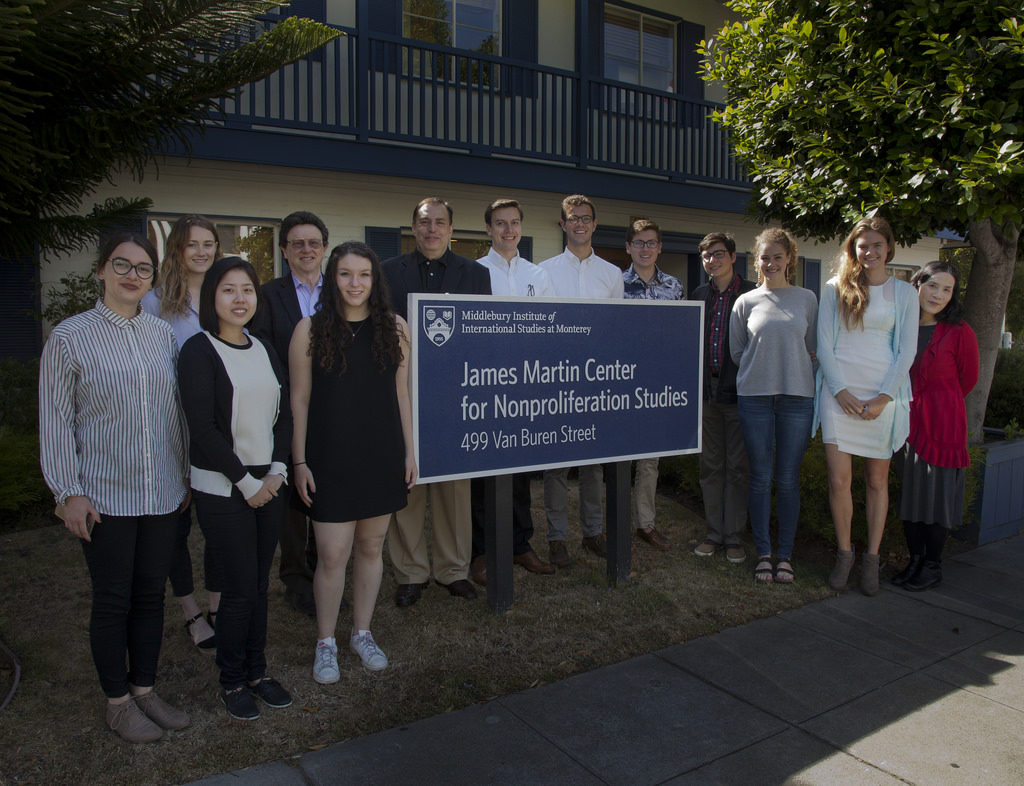June 15, 2017
Masako Toki
For most undergraduate students, the opportunity to study specialized nonproliferation issues is rare. Therefore, the James Martin Center for Nonproliferation Studies (CNS) offers a Summer Undergraduate Nonproliferation Program for select undergraduates as a unique way to further our mission of combatting the spread of weapons of mass destruction by educating the next generation of nonproliferation experts. This year, CNS welcomed thirteen talented undergraduates from top US universities to our program.
The 2017 group includes eleven undergraduate interns and two Davis United World College (UWC) fellows. Each was selected through a rigorous and competitive application process. Program participants hail from some of the nation’s best schools, including Middlebury College, Brown University, Yale University, Occidental College, University of Georgia, College of William and Mary, Harvey Mudd College, University of California, Davis, Cornell University, and Smith College.

Summer Undergraduate Interns and Davis UWC Fellows with CNS director Dr. Bill Potter, Visiting Professor Tariq Rauf, and Project Manager Masako Toki.
Students receive invaluable job training, work closely with CNS experts, and attend an engaging lecture series on issues relating to the spread and control of weapons of mass destruction (WMD) and regional nonproliferation issues including Eurasia, East Asia, South Asia, and the Middle East. Lectures focus on nuclear security, current challenges in nuclear disarmament, export controls, open-source tools for nonproliferation, and more. The summer students will also experience hands-on training with using new tools for nonproliferation, a recent emphasis of CNS researchers and teachers.
In addition to CNS experts, students will also have the opportunity to meet with top international experts and leaders in the field including Dr. Tariq Rauf, a former top official at the International Atomic Energy Agency, who will once again join the summer undergraduate program to share some of his extensive experience in the nonproliferation and disarmament field.
This year’s program also includes an intensive diplomacy simulation on the topic of the Convention on the Prohibition of Nuclear Weapons (commonly known as Ban Treaty), led by Mr. Jean duPreez, a former senior official with the Comprehensive Nuclear-Test-Ban Treaty with extensive experience in multilateral negotiations. Students can also undertake their own research projects under the guidance of CNS experts.
CNS started the Summer Undergraduate Internship Program in 1997, and the Davis UWC Fellowship in Nonproliferation Studies was established in 2006. Since then, interns and Davis UWC fellows have come from a wide variety of majors, including biology, chemistry, international relations, East Asian studies, nuclear engineering, mathematics, political science, peace studies, computer science, psychology, Russian area studies, Slavic studies, and economics. The program also accepts highly qualified international students. The program runs from early June through late August.
This year’s Summer Internship is funded by the Tom and Sarah Pattison Fund and the Earle Family Fund for International Education. The Davis UWC Fellowship Program is funded by the Davis UWC Scholars Program.
For more information please see the summer undergraduate nonproliferation program website.
